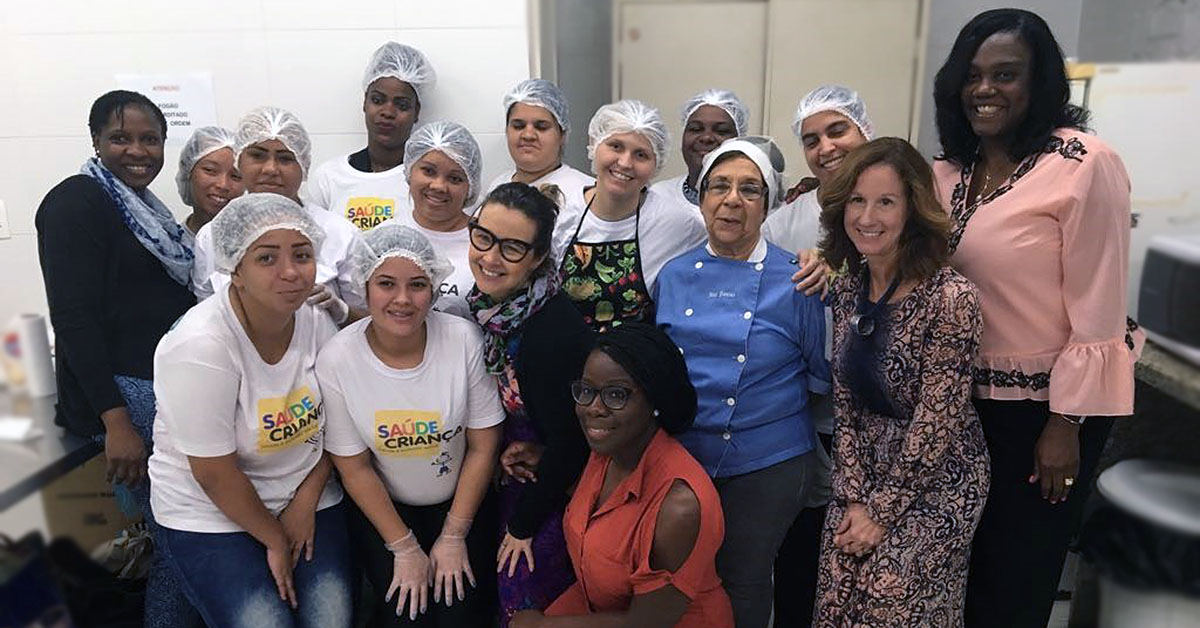|
University of Maryland School of Nursing
|
|
NRSG 609
|
Essentials and Practice in Global Health Nursing (3 credits, fall and spring, web-based)
|
|
NURS 690
|
Managerial Health Finance (3 credits, fall and spring, web-based)
|
|
NURS 724
|
Health, Health Care, and Culture (3 credits, web-based) |
|
NURS 732
|
Program Planning and Evaluation in Community/Public Health (3 credits, spring only)
|
|
NRSG 780
|
Health Promotion and Population Health (3 credits, web-based)
|
|
NRSG 782
|
Health Systems & Health Policy: Leadership and Quality Improvement (3 credits, web-based)
|
|
NRSG 790
|
Methods for Research and Evidence Based Practice (3 credits, web-based)
|
|
NRSG 795
|
Biostatistics for Evidence Based Practice (3 credits, web-based)
|
|
University of Maryland School of Law
|
|
LAW 502
|
International Human Rights (3 credits)
|
|
LAW 503
|
Health Care Law and Policy (3 credits)
|
|
LAW 548
|
Critical Issues in Health Care (3 credits)
|
|
LAW 618
|
Public Health Law (3 credits)
|
|
University of Maryland School of Social Work
|
|
SOWK 703
|
Program Management (3 credits)
|
|
SOWK 704
|
Community Organization (3 credits)
|
|
SOWK 705
|
International Social Work (3 credits)
|
|
SOWK 720
|
Comparative Social Policy (3 credits)
|
|
SOWK 772
|
Evaluation Research (3 credits)
|
|
SOWK 783
|
Qualitative Ethnocultural Research (3 credits)
|
|
University of Maryland School of Medicine – Department of Epidemiology and Public Health
|
|
PREV 613
|
Nutritional Epidemiology (3 credits)
|
|
PREV 625
|
Community-Based Participatory Research: Theory and Methods (3 credits)
|
|
PREV 627
|
Vaccinology (3 credits)
|
|
PREV 716
|
Chronic Disease Epidemiology (3 credits)
|
|
PREV 705
|
Pharmacoepidemiology (3 credits)
|
|
PREV 749
|
Infectious Disease Epidemiology (3 credits)
|
|
PREV 758
|
Health Survey Research Methods (3 credits)
|
|
PREV 803
|
Clinical Trials/Experimental Epidemiology (3 credits)
|
|
PH 648
|
Health Services Policy, Management, and Finance (3 credits)
|
|
University of Maryland School of Medicine
|
|
MSTP 589
|
Research (Elective, 4 credits, Spring)
|
|
MSTP 598
|
Physician Scientist (Elective, 4 credits, Fall)
|
|
MEDT 638
|
Special Topics (Lecture, 1-4 credits)
|
|
ICME 541
|
Indian Health Service (Clinical, 4 credits)
|
|
ICME 542
|
Public Health (Independent Study, 4 credits)
|
|
ICME 543
|
International Health (Independent Study, 4 credits)
|
|
ICME 544
|
Research (Research, 4 credits)
|
|
ICME 545
|
Community Service Project (Independent Study, 4 credits)
|
|
University of Maryland School of Pharmacy
|
|
PHAR 5010
|
Health Policy and Systems (2 credits)
|
|
PHAR 5015
|
Public Health Pharmacy (2 credits)
|
|
PHMY 5005
|
Interdisciplinary HIV Care (2 credit)
|
|
PHMY 5007
|
Health System Pharmacy Practice (2 credit)
|
|
PHMY 598
|
Effective Leadership and Advocacy (2 credits)
|
|
PHSR 610
|
Pharmacy, Drugs, and the Health Care System (3 credits)
|
|
University of Maryland School of Dentistry
|
|
DHYG 603
|
Issues in Health Promotion and Disease Prevention (2 credits)
|
|
DHYG 619
|
Area of Specialization Practicum (1-6 credits)
|
|
DHYG 649
|
Research Practicum (1-6 credits)
|
|
DPAT 599
|
Special Topics (1-12 credits)
|
|
DMBS 638
|
Biostatistics (1-3 credits)
|
